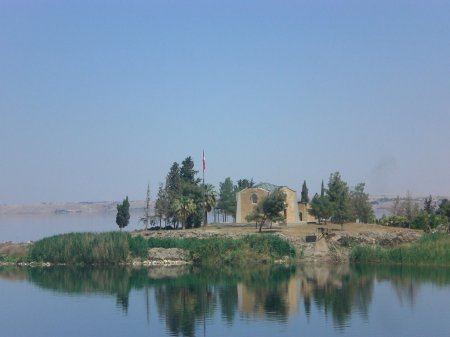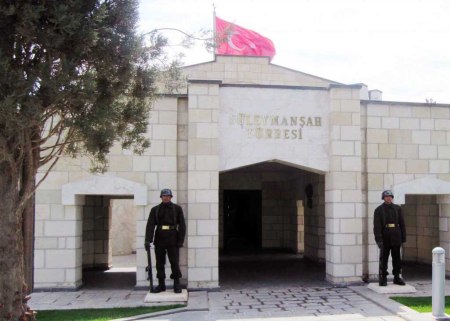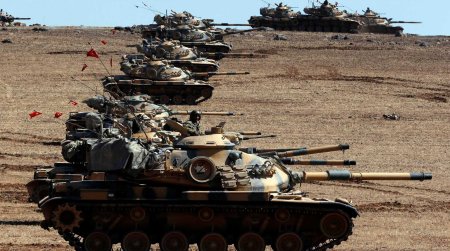The Turkish Army launched a military incursion into Syria late Saturday, February 21, to evacuate the Tomb of Suleyman Shah, which allegedly has been besieged by IS (Islamic State) terrorists since last year.
A Turkish lawmaker said on his Twitter account that Turkish military had entered into Syria and arrived at the Suleyman Shah tomb early Sunday. “TSK (Turkish Armed Forces) entered in Saygi Station. Our station is taken under protection. Clashes or attacks out of question,” wrote Sinan Ogan, a deputy of the opposition Nationalist Movement Party.
The initial reports about this military operation in the online editions of the Turkish newspapers Milliyet and Yeni Safak were pulled from the internet almost immediately after being posted, but Prime Minister Ahmet Davutoglu confirmed now the successful conclusion of the operation.
A large convoy of 39 tanks and other heavy weaponry with 572 military personnel including special forces commandos entered Syria through Kobane, the Kurdish territory in Syria which has recently been freed of IS occupants in a military operation by the Kurdish YPG/YPJ.
The military operation was reportedly conducted in correspondence with Enver Muslim, co-leader of the Syrian Kurdish YPG in control of Kobane, and aimed to evacuate 38 soldiers, including 20 elite troops from the Turkish special forces who guarded the tomb.
Turkish prime minister Ahmet Davutoglu told a news conference on Sunday, February 22, that Turkey had not sought permission or assistance for the mission but had informed allies in the US-coalition against IS once it began.
“This was an extremely successful operation with no loss to our rights under international law,” he said, flanked by the chief of the military and the defense minister.
Two operations were carried out simultaneously as part of what was dubbed operation “Shah Euphrates,” Davutoglu told, one to Suleyman Shah and the other to secure the area around Esmesi, a small village inside Syrian territory close to the Turkish border, where the tomb has been temporarily relocated. The remaining buildings at the original site were destroyed to prevent their use after the remains were removed.
There have been no reports of clashes but one Turkish soldier died in an accident.
Suleyman Shah was the grandfather of Osman I, who founded the Ottoman empire in 1299. Travelling through modern-day Syria, according to historians, he fell off his horse and drowned in the Euphrates near the site of todays mausoleum, located 37 kilometer from the Turkish border. His tomb is considered by the Turkish government to be Turkish territory.
Davutoglu has repeatedly said that Turkey would retaliate against any attack on the tomb. “Countries which do not look after their historic symbols cannot build their future,” Davutoglu stated when he announced the military intrusion.
In March 2014, Davutoglu, foreign minister at the time, said that Turkey would take any measure necessary to safeguard the security of the tomb, referred to as Turkish soil based on an accord signed between Turkey and France in 1921.
“Should there be an attack, either from the regime, or radical groups or elsewhere, it would be countered equally,” Davutoglu said categorically. His statement was soon followed by the replacement of the tomb’s regular guards with special forces troops.
In 2012, at a time when the Syrian conflict had intensified and Turkey’s support for Islamic militants became more obvious, Ankara revised its military engagement rules and licensed the army to launch cross-border operations if they were deemed necessary.
Until now there is no reaction of the Syrian government and it is not known if the Turkish troops will stay or retreat to Turkey again.



Keine Kommentare:
Kommentar veröffentlichen